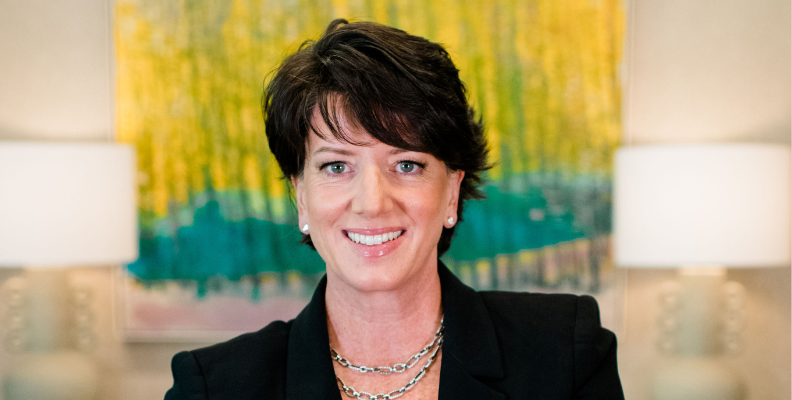
Who Do You Really Need? A Small Business Owner’s Guide to Hiring a Bookkeeper, Tax Pro, Controller, or CFO
Confused about whether your business needs a bookkeeper, tax pro, controller, or CFO? This guide breaks down each role to help you hire the right financial expert at the right time.
November 13, 2025
Who Do You Really Need? A Small Business Owner’s Guide to Hiring a Bookkeeper, Tax
Pro, Controller, or CFO
Most business owners I meet aren’t entirely sure what the difference is between a
bookkeeper, a tax CPA, a controller, and a CFO. And that confusion makes sense. Financial
roles can sound interchangeable from the outside, but hiring the wrong one (or hiring too
soon) can cost you time, money, and peace of mind.
In my practice, I’ve helped business owners clean up messy books, replace underqualified
hires, and streamline systems that had gotten way too complicated. And in almost every
case, the root of the problem was the same: they didn’t know who to hire or when.
This guide is here to help you figure it out.
Whether you’re approaching your first million in revenue or navigating growth past $10
million, understanding these four financial roles will help you build the right support team,
avoid expensive missteps, and make smarter, faster decisions.
1. Bookkeeper: Your Day-to-Day Financial Organizer
What they do:
Bookkeepers track and categorize every dollar coming in and out of your business. They
handle day-to-day data entry, reconcile bank and credit card statements, manage
accounts payable and receivable, and help make sure your records are clean and up to
date.
When you need one:
If your business is generating steady income (usually around $250K+ annually) and you’re
still managing the books yourself, it's time. A reliable bookkeeper will save you hours of
time and prevent costly mistakes.
Questions to ask before hiring:
• What accounting software do you use?
• How do you ensure transactions are categorized correctly?
• Do you provide monthly reconciliations and reporting?
• Will you communicate directly with my tax CPA or controller?
2. Tax Pro: Your IRS+ Navigator
What they do:
When it comes to taxes, you need a specialist, not just a general accountant. That means
working with a Certified Public Accountant (CPA) who focuses on taxation or an Enrolled
Agent (EA), both of whom are licensed to represent you before the IRS and trained to
navigate complex tax rules.
These pros do more than just file returns. They offer proactive tax planning, help you
choose the right business structure, and ensure you’re taking full advantage of deductions
and credits.
When you need one:
If your business earns over $250K a year, it’s time to stop guessing and start planning.
Working with a tax expert year-round helps you avoid surprises in April and keeps more
money in your business, where it belongs.
Questions to ask before hiring:
• Are you a CPA or EA?
• Do you offer year-round tax planning or just prep?
• Will you meet with me quarterly to review projections?
• Do you have experience in my industry?
3. Fractional Controller: The Financial Systems Builder
What they do:
A controller oversees your entire accounting function. They don’t just check the numbers,
they set up the systems, controls, and processes that ensure the numbers are accurate in
the first place. A good controller turns your financial chaos into clarity.
They review and clean up your books, close the books monthly, produce accurate financial
statements, and oversee your bookkeeper (if you have one). Think of them as the financial
operations lead.
When you need one:
If you’ve hit $1M+ in revenue and don’t fully trust your numbers, or you're spending too
much time on spreadsheets instead of strategy, it’s time. I usually recommend bringing in a
fractional controller when the cost of not knowing your numbers keeps you up at night.
Questions to ask before hiring:
• What’s your process for month-end close?
• Can you help evaluate or improve our financial systems?
• Do you provide oversight for our bookkeeper or AP/AR process?
• How do you deliver reports, and how often?
4. Fractional CFO: The Strategic Financial Partner
What they do:
A CFO is your strategic partner for big-picture planning and decision-making. They build
financial forecasts, analyze margins, manage budgets, and help you prepare for
fundraising, expansion, or exits.
A fractional CFO gives you all that expertise without the full-time executive salary.
When you need one:
Typically, if you're doing $3M+ in revenue, have multiple revenue streams, or are preparing
for a capital raise, a fractional CFO can help you scale confidently. I also see founders bring
in a CFO when they’re tired of making financial decisions based on instinct alone.
Questions to ask before hiring:
• Do you have experience with companies at my growth stage?
• Can you build or improve our financial forecasting models?
• Will you participate in board meetings, investor calls, or lender negotiations?
• What KPIs and dashboards do you recommend tracking?
Who Should You Hire First?
Here’s a simple way to think about it:
Revenue Range & Who You Likely Need
Under $250K: Bookkeeper + Tax Pro (EA or CPA)
$250K – $1M: Bookkeeper + proactive Tax Pro
$1M – $3M: Add a Fractional Controller for better visibility and controls
$3M – $20M: Add a Fractional CFO for strategy, growth planning, and decision support
Don’t Just Hire for Now. Hire for What’s Next
Many business owners wait too long to hire financial help and end up playing catch-up. My
advice? Hire for the business you’re becoming, not just the business you are today.
If you’re unsure where your financial systems stand or who you need next, I’ve created a
simple (and free) self-assessment to help you evaluate your current setup.
And if you’re ready to talk through your options, you can always reach out to me directly here. I’d love to help you build a smarter, smoother
financial operation so you can focus on growing your business with confidence.














.png)

.png)



.avif)

